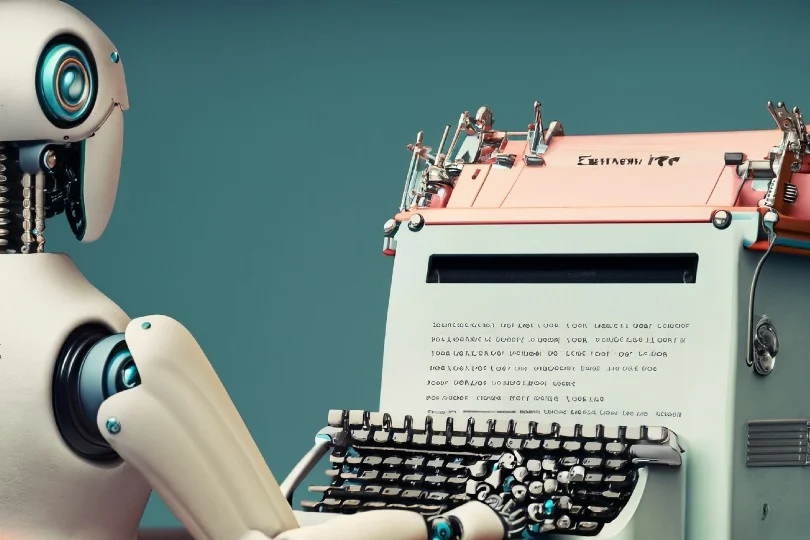Writing in a World of AI
Writing in a World of AI
The advent of artificial intelligence (AI) has revolutionized various industries, and writing is no exception. From generating content to assisting with editing, AI tools are transforming how we approach writing. This blog explores the impact of AI on writing, the benefits and challenges it presents, and how writers can adapt to this new landscape.
The Evolution of AI in Writing
AI’s journey in the writing domain began with simple grammar checkers and has evolved into sophisticated tools capable of generating entire articles. Early AI tools like spell checkers and grammar correctors paved the way for more advanced applications such as predictive text and content generation. Today, AI can assist with everything from brainstorming ideas to creating polished final drafts.
Benefits of AI in Writing
- Enhanced Productivity
One of the most significant advantages of AI in writing is the boost in productivity. AI tools can handle repetitive tasks such as proofreading, formatting, and even generating content outlines. This allows writers to focus on more creative aspects of their work.
- Improved Accuracy
AI-powered grammar and spell checkers have become incredibly accurate, reducing the likelihood of errors in written content. Tools like Grammarly and Hemingway Editor help writers produce clear, error-free text, enhancing the overall quality of their work.
- Content Generation
AI can generate content based on specific inputs, making it a valuable tool for marketers and content creators. For instance, tools like GPT-4 can create blog posts, social media updates, and even product descriptions, saving time and effort.
Challenges of AI in Writing
- Quality and Originality
While AI can generate content, it often lacks the nuance and creativity of human writers. AI-generated content can sometimes feel formulaic and may not capture the unique voice or style of a writer. Ensuring originality and maintaining a personal touch remains a challenge.
- Ethical Concerns
The use of AI in writing raises ethical questions about authorship and originality. Who owns the content generated by AI? How do we ensure that AI-generated content is not plagiarized? These are important considerations for writers and content creators.
- Dependence on Technology
Over-reliance on AI tools can lead to a decline in writing skills. Writers may become too dependent on AI for editing and content generation, potentially stifling their creativity and critical thinking abilities.
Adapting to the AI-Driven Writing Landscape
- Embrace AI as a Tool, Not a Replacement
Writers should view AI as a tool that can enhance their work, not replace them. By leveraging AI for tasks like editing and content generation, writers can focus on adding their unique voice and creativity to their work.
- Continuous Learning
Staying updated with the latest AI tools and technologies is crucial. Writers should invest time in learning how to use these tools effectively and understand their limitations. This will enable them to make the most of AI without compromising on quality.
- Ethical Writing Practices
Writers must adhere to ethical practices when using AI. This includes properly attributing AI-generated content and ensuring that their work remains original. Transparency about the use of AI in writing can help maintain trust with readers.
Case Studies: AI in Action
- AI in Journalism
Several news organizations are using AI to generate news articles. For example, The Washington Post’s AI tool, Heliograf, can create news stories based on data inputs. This allows journalists to focus on more in-depth reporting and analysis.
- AI in Marketing
Marketers are leveraging AI to create personalized content for their audiences. Tools like Persado use AI to generate marketing copy that resonates with specific target groups, improving engagement and conversion rates.
- AI in Creative Writing
AI is also making its mark in creative writing. Authors are experimenting with AI to co-write novels and generate plot ideas. While AI may not replace human creativity, it can serve as a valuable collaborator in the creative process.
The Future of Writing in an AI World
The future of writing in an AI-driven world is both exciting and uncertain. As AI continues to evolve, it will undoubtedly play a more significant role in the writing process. However, the human touch will remain irreplaceable. Writers who can effectively blend AI tools with their creativity and critical thinking will thrive in this new landscape.
Writing in a world of AI presents both opportunities and challenges. By embracing AI as a tool and maintaining ethical practices, writers can enhance their productivity and creativity. The key is to strike a balance between leveraging AI’s capabilities and preserving the unique qualities that make human writing special. As we navigate this evolving landscape, one thing is clear: the future of writing is here, and it is powered by AI.

